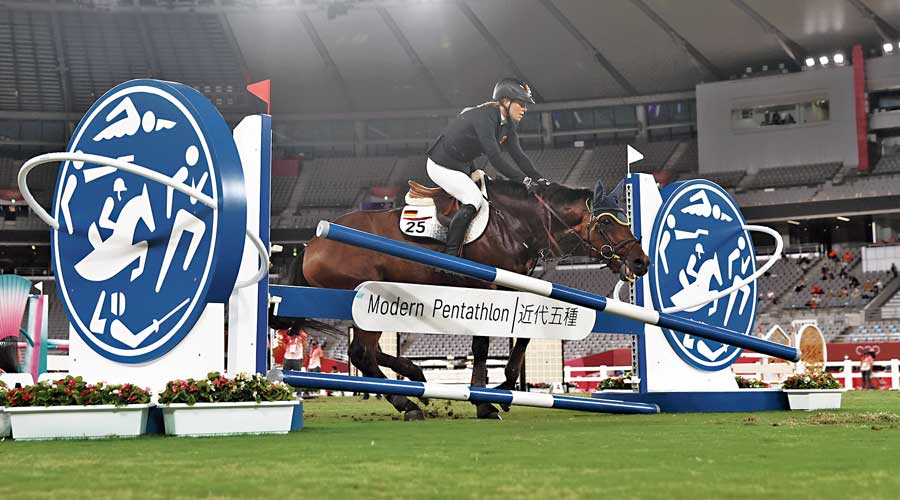After the conclusion of the Tokyo Games, Peta (People for the Ethical Treatment of Animals) appealed to the International Olympic Committee (IOC) to eliminate equestrian events from future Olympics, citing cruelty to horses.
In an incident that was later widely circulated on social media, Germany’s Annika Schleu was filmed whipping her horse Saint Boy after he refused to jump during the modern pentathlon competition. German coach and trainer Kim Raisner was also shown hitting the horse.
Peta also noted two other incidents in the equestrian eventing competition.
This is not the first time that Peta has spoken up against animal abuse in equestrian sports and over the years the association has emphasised that animals are not meant for our recreational or sporting purposes.
Equestrian Fouaad Mirza, who was India’s sole representative in the sport at the Tokyo Olympics, refuses to accept Peta’s contention.
“The first point to be noted is that equestrians take to this sport because they love the horses. The sporting part comes later. Hence the question of deliberately inflicting pain on the animal does not arise,” Mirza told The Telegraph from his base in Ganderkesee, Germany.
“In equestrian sport, a horse is as well looked after as one would look after any top athlete at the Olympics. In fact, even more. And not only physically… Both, the rider and the horse, have to be in a good space mentally during a competition for the ‘partnership’ to be successful,” he added.
“But if a horse decides not to do something, it won’t,” Mirza continued. “We are talking about an animal which is 700kg of muscles and bones with a mind of its own and on a given day if it decides not to move, there is not much one can do.”
Three-time Asian Games medallist Colonel Rajesh Pattu points out that the international equestrian federation (FEI)’s general regulation stipulates: ‘To ensure that the welfare of the horse is paramount and that it is never subordinated to competitive or commercial influence.’
He went on to narrate a tragedy at the 2006 Asian Games in Doha where he was competing. “Just ahead of me there was Korea’s Kim Hyung-chil on the eventing course. The horse got caught in a fence obstacle, throwing Kim over before it itself catapulted over, crushing the front of the rider’s head and chest. Kim never regained consciousness. So it is not only about injury to the horse.”
And if some rider or coach is deliberately cruel, he/she would be penalised, said both equestrians, emphatically.
As it happened with Raisner, who was thrown out of the Tokyo Games.
Modern pentathlon is not under the jurisdiction of the FEI and Mirza would prefer not to comment about them.
But had he been in a similar situation of a reluctant horse, what would he have done?
“I would have just put my hand up and lived to fight another day,” said the equestrian who performed creditably in Tokyo, without missing a beat.










